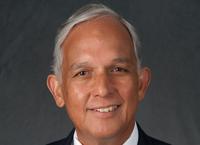Politics
Young Americans Embrace Socialism, Ignoring Historical Lessons

A growing trend among young Americans reveals a significant shift in attitudes towards socialism. Polls indicate that nearly two-thirds of those under 30 now view socialism favorably, with a recent Gallup survey showing that 39% of U.S. adults express positive sentiments about the ideology. Among Democrats, this figure rises to 66%. This change has sparked concern among those who have lived through the realities of socialism, particularly for individuals who experienced its pitfalls firsthand.
Reflecting on their upbringing, many who emigrated from socialist countries recall a starkly different reality. For instance, a Bulgarian expatriate describes the hardships faced in the late 20th century. After leaving Bulgaria in 1989, they witnessed the devastating aftermath of a regime that promised equality but delivered scarcity. The collapse of the national currency, the lev, resulted in hyperinflation exceeding 300% annually by 1999. This economic turmoil forced thousands to seek opportunities abroad, contributing to a demographic crisis that persists today.
The author recalls a childhood plagued by shortages, where simple commodities like bread and milk were often hard to come by. “I remember standing in line for hours just to get a kilo of citrus,” they recount. Such experiences shape a profound understanding of the term “equality,” which in practice meant shared misery rather than shared prosperity.
As young Americans rally behind slogans such as “collective good” and “workers’ democracy,” the author expresses a haunting sense of déjà vu. These phrases echo the propaganda of their past, instilling a cautionary perspective. They argue that the idealism seen in American youth today overlooks the harsh realities of socialism’s historical consequences, which often include repression and economic hardship.
The author emphasizes that while capitalism has flaws, it also fosters opportunity, innovation, and individual freedom. They argue that the young generation’s view of socialism as a solution to issues such as student debt and rising housing costs is fundamentally naive. “They dream of Denmark and Sweden,” they note, “but may inadvertently stumble into something closer to the Soviet Union.”
Moreover, they highlight the educational gaps that leave many young Americans unaware of socialism’s historical failures, including the oppressive regimes that have led to mass suffering. The author warns that socialism often begins with uplifting intentions but can lead to tyranny and the erosion of individual rights.
In light of these reflections, the author calls on young Americans to learn from history rather than repeat its mistakes. “You don’t need to relive our history to learn from it,” they assert. “You only need to open a history book to remember.” They conclude with a poignant reminder from former U.S. President Ronald Reagan: “Socialism only works in two places: Heaven where they don’t need it, and hell where they already have it.”
This sentiment encapsulates the fears of those who have lived under oppressive regimes, urging the current generation to approach the topic of socialism with caution and critical awareness.
-

 Lifestyle4 months ago
Lifestyle4 months agoLibraries Challenge Rising E-Book Costs Amid Growing Demand
-

 Sports3 months ago
Sports3 months agoTyreek Hill Responds to Tua Tagovailoa’s Comments on Team Dynamics
-

 Sports3 months ago
Sports3 months agoLiverpool Secures Agreement to Sign Young Striker Will Wright
-

 Lifestyle3 months ago
Lifestyle3 months agoSave Your Split Tomatoes: Expert Tips for Gardeners
-

 Lifestyle3 months ago
Lifestyle3 months agoPrincess Beatrice’s Daughter Athena Joins Siblings at London Parade
-

 World3 months ago
World3 months agoWinter Storms Lash New South Wales with Snow, Flood Risks
-

 Science4 months ago
Science4 months agoTrump Administration Moves to Repeal Key Climate Regulation
-

 Science3 months ago
Science3 months agoSan Francisco Hosts Unique Contest to Identify “Performative Males”
-

 Business4 months ago
Business4 months agoSoFi Technologies Shares Slip 2% Following Insider Stock Sale
-

 Science4 months ago
Science4 months agoNew Tool Reveals Link Between Horse Coat Condition and Parasites
-

 Sports4 months ago
Sports4 months agoElon Musk Sculpture Travels From Utah to Yosemite National Park
-

 Science4 months ago
Science4 months agoNew Study Confirms Humans Transported Stonehenge Bluestones









